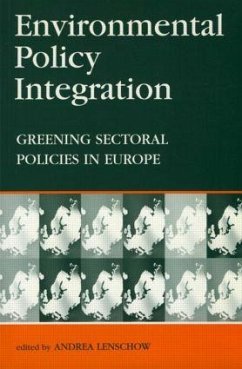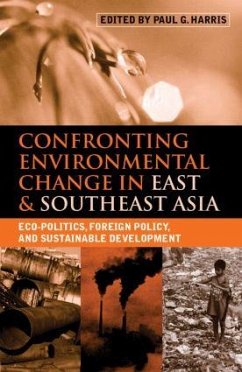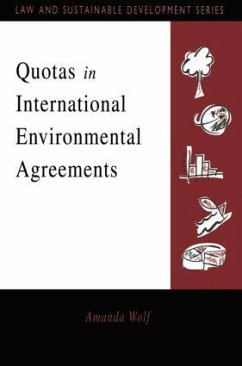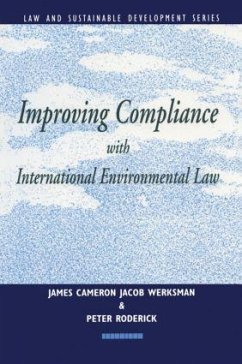
Environmental Policy Integration in Practice
Shaping Institutions for Learning
Herausgeber: Nilsson, Mans; Eckerberg, Katarina
Versandkostenfrei!
Versandfertig in 1-2 Wochen
60,99 €
inkl. MwSt.
Weitere Ausgaben:

PAYBACK Punkte
30 °P sammeln!
Environmental values and concerns are meant to be reflected through environmental policy, which is then integrated into mainstream economic and social policy that serves to govern society and the economy in different sectors. Yet effective environmental policy integration has proved to be very difficult in practice and it remains largely an elusive aspiration. This groundbreaking volume presents the first ever detailed examination of EPI at the national policy level, focusing on the key sectors of energy and agriculture within Sweden, a country that is widely recognized as a front runner in en...
Environmental values and concerns are meant to be reflected through environmental policy, which is then integrated into mainstream economic and social policy that serves to govern society and the economy in different sectors. Yet effective environmental policy integration has proved to be very difficult in practice and it remains largely an elusive aspiration. This groundbreaking volume presents the first ever detailed examination of EPI at the national policy level, focusing on the key sectors of energy and agriculture within Sweden, a country that is widely recognized as a front runner in environmental management. The authors deconstruct EPI, look at what it means in policy formation and examine how environmental priorities are treated in relation to other political priorities. The final section of the book lays out the major findings and presents key lessons for international application, including institutional recommendations on how to enhance the potential for EPI. Most fundamentally, the book answers the questions of what works for EPI, why it works, and how it can be achieved in practice across sectors. The result is a rich and indispensable guide for all those involved in environmental and sustainable development policy issues.














